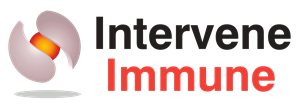Summary
As the human body ages, the thymus begins to shrink, and fewer numbers of T cells are created and trained to fight. This structural decay of the thymus is one of the main reasons why we become increasingly vulnerable to infectious diseases, such as influenza and pneumonia.
Dr. Greg Fahy has been working on rejuvenation of the thymus for a number of years and, in 2015, conducted a small-scale human trial to see if the earlier results in animals would translate to people. His approach focuses on the use of human growth hormone (HGH) and dehydroepiandrosterone (DHEA) to regrow the thymus.
The trial was conducted under an FDA-approved IND (investigational new drug) application and with a review from multiple scientific and ethics committees. It consisted of a 12-month treatment course for 9 men divided into two cohorts, with the first cohort having started in October of 2015 and the second having ended in April 2017.
The initial results from thymic imaging show that there was a consistent and substantial increase in thymic density, which suggests the replacement of fatty thymic tissue with denser, water-rich tissue. In previous studies on human immunodeficiency patients, this tissue replacement was correlated with improved thymic function. Basic tests of immune system aging indicated that there were improvements in eight of the nine men in the trial. Additionally, they were able to identify a possible reason and a potential solution for the ninth volunteer’s lack of response to the treatment.
Intervene Immune is currently working with physicians to provide a complete program of treatment and monitoring for patients. Its website offers prospective patients a number to call and a contact form, and the company replies to them with details on where and how they can receive this therapy. While this is an off-label use of HGH and DHEA, these compounds have already been approved for other conditions.
The company is now conducting a Phase 2 clinical trial, TRIIM-X, with 85 participants. (NCT04375657)

